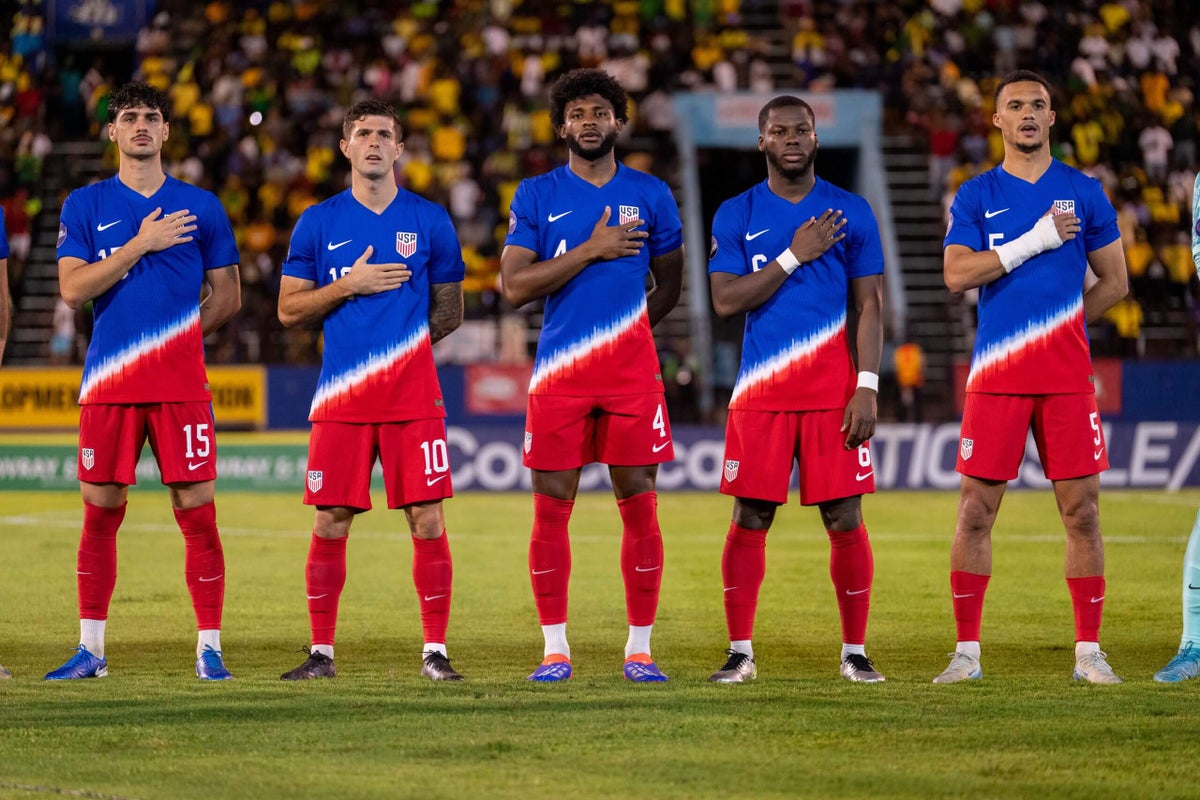HARRISON, N.J. – With the World Cup clock relentlessly ticking down – just nine months away, a mere blink in the grand scheme of international football – the U.S. Men`s National Team (USMNT) finds itself in a peculiar and increasingly precarious position. Under the stewardship of head coach Mauricio Pochettino, a philosophy described as “organized chaos” was meant to define their play. Yet, recent performances suggest the “chaos” might be taking precedence over the “organization,” leaving fans, pundits, and perhaps even the squad itself, wondering if this grand experiment is charting a course to glory or a collision with reality.
The Unsettling Rhythm of Experimentation
Pochettino, nearly a year into his tenure, has established a discernible, albeit unsettling, rhythm. Each international window brings a fresh rotation of players, an intriguing mix of seasoned veterans and unproven talents, all thrust into a high-stakes audition. The intention is clear: broaden the talent pool, test resilience under pressure. The outcome, however, has often been a team struggling to find its tactical footing, where individual performances, for better or worse, frequently overshadow any cohesive team strategy.
Consider the recent 2-0 defeat to South Korea. On paper, the statistics offered a glimmer of hope: 17 shots to South Korea`s 5, and a commanding 2.27 expected goals (xG) against the opponent`s 0.74. Yet, football, a game famously played on grass and not spreadsheets, delivered a starkly different verdict. Two first-half goals from the visitors, two of their mere four shots on target, were enough to secure victory. It`s a recurring nightmare for the USMNT: an inability to convert dominance into goals, coupled with a worrying susceptibility to crucial, often avoidable, defensive lapses.
“Overall, I think we were better than South Korea but [in] the end, if you are not clinical in your own area and then in the opposite box, it`s difficult… I am so pleased, if I put the result on another side.” – Mauricio Pochettino post-match.
A coach finding solace in theoretical superiority while ignoring the actual scoreline might strike some as optimistic, others as concerning. With seven losses in 17 matches, the journey under Pochettino has become less a smooth cruise and more a white-knuckle ride.
Slow Starts and Defensive Doubts
The “game of moments,” as Pochettino described it, has consistently swung against the USMNT in crucial early phases. A deeply troubling pattern has emerged: the team has been outscored 11-2 in their last seven first halves against opponents ranked in FIFA`s top 25. This isn`t just an anomaly; it`s a chronic condition that leaves the team playing catch-up, often against settled, confident opponents. It’s a habit that will be ruthlessly exploited on the biggest stage.
Defensively, the revolving door of personnel has left the backline looking, at times, like strangers introduced moments before kickoff. The absence of key figures due to injury or rest, such as Chris Richards and Antonee Robinson, undeniably impacts stability. However, individual errors, like those seen from Sergino Dest`s sometimes-lax defensive duties or Tristan Blackmon`s challenging debut, are symptoms of a larger issue: a lack of ingrained understanding and protection that only comes from consistent pairings and tactical reinforcement. Blackmon, thrown into the deep end, became the latest emblem of this sink-or-swim approach, a strategy that offers invaluable experience but can be brutally unforgiving.
The Player Perspective: Pressure and Performance
Midfielder Tyler Adams, a stalwart of the squad, articulated the immense pressure on new players entering this environment:
“It`s not always easy to come into a national team. I remember what it was like when I came into my first national team camp and I played like shit so I understand what it`s like right now… Only nine months until a World Cup, they might feel pressure, they might feel nerves.”
This candid admission highlights the double-edged sword of Pochettino`s approach. While it provides opportunities, it also exposes inexperienced players to intense scrutiny and expectation, arguably without the bedrock of a stable tactical framework to support them. Leaders like Adams are tasked with integrating these new faces, but even the most inspiring camaraderie cannot fully compensate for a team still finding its tactical triggers, as Adams himself noted about their defensive struggles: “We were a little bit too late to jump. If you`re too late to jump, you end up chasing shadows. That`s what it felt like at times.”
The World Cup Gambit: Time vs. Talent Identification
Pochettino`s rationale for this relentless experimentation is clear: he believes extensive playing time at this level is the only true way to vet talent and prepare players for the rigors of a World Cup on home soil. He has, notably, fielded 14 different starting lineups in his 17 matches – a statistic that speaks volumes about his commitment to finding the `right` combination. Sometimes, these changes bear fruit, like the potential for a back three formation. More often, however, they contribute to the disjointed performances that have become the team`s hallmark.
The question, then, is one of timing and priority. With the World Cup less than a year away, is the emphasis still on broad talent identification, or should the focus shift dramatically towards solidifying a core squad and a primary tactical identity? The luxury of open-ended experimentation diminishes with each passing day. The team needs to transition from “testing too many things” to mastering a few vital ones.
The journey of the USMNT under Pochettino is a captivating, if nerve-wracking, narrative. It`s a high-stakes poker game where the coach is still shuffling the deck while the dealer calls for the final bets. Can this “organized chaos” coalesce into a formidable force, or will the desire to discover every possible gem leave them without a coherent foundation when it truly matters? Only time, the ultimate arbiter, will tell if Pochettino`s bold gambit pays off.

